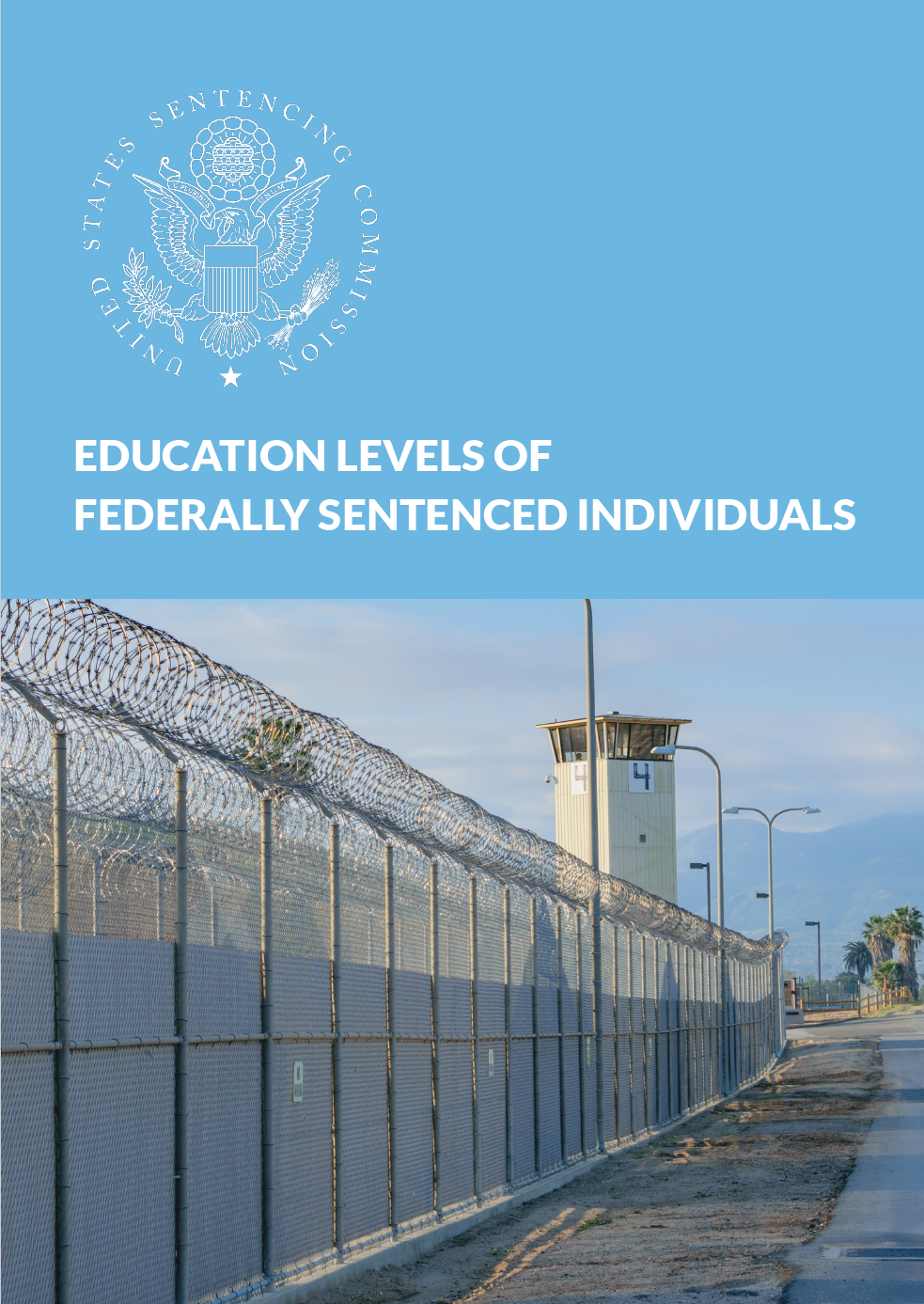Summary
(Published December 2023) The Commission has previously published reports on the relationship between demographic factors and sentencing, but none have focused specifically on the educational attainment of federally sentenced individuals. The federal sentencing guidelines provide that specific characteristics of sentenced individuals, such as education, may be considered at sentencing; yet there is little information published that examines differences across education levels. This report provides an analysis of the federally sentenced individuals in fiscal year 2021 by educational attainment.
Key Findings
- Most federally sentenced U.S. citizens had a high school degree (42.3%) or never graduated high school (28.4%).
- The types of offenses committed by federally sentenced U.S. citizens varied by educational attainment.
- For those with less than a high school degree, drug trafficking (42.0%) was the most common offense, followed by firearms (25.2%), immigration (11.5%), robbery (4.2%), and fraud (4.1%).
- Sentenced individuals with an undergraduate or graduate degree were convicted more often for economic or sex offenses than sentenced persons with less education. Approximately one-third (32.9%) of sentenced individuals with an undergraduate degree were convicted of a fraud offense.
- Similarly, fraud (42.2%) was the most common offense of conviction among federally sentenced persons with a graduate degree, though medical doctors were equally likely to commit fraud (37.6%) or drug trafficking (36.5%).
- Federally sentenced U.S. citizens with more educational attainment had less extensive criminal histories than sentenced persons in lower educational attainment groups.
- Sentencing outcomes for federally sentenced U.S. citizens varied by educational attainment.
- Sentenced individuals with more educational attainment were more likely to receive probation.
- Sentenced persons with more educational attainment were more likely to receive a sentence below the applicable guideline range.
- Federally sentenced individuals with more educational attainment received sentences that on average were further below the applicable guideline range than those with lower educational attainment.
- Whether the degree was key to the facilitation of the offense varied considerably by type of graduate degree.
- A substantial majority of medical doctors (85.6%) and sentenced individuals with graduate degrees in nursing (82.1%) required their degree to commit the offense.
- In contrast, 29.3 percent of lawyers required their degree to commit the offense, and 27.5 percent received a §3B1.3 enhancement.

